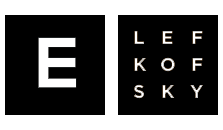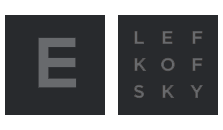Groupon, Poggled, and Other Reasons VCs are Suddenly Traveling to Chicago These Days
Read the Chicago papers, and you’re a lot less likely to read about a new entrepreneur on any given day than sales for fast-food giant McDonald’s Corp., based in nearby Oak Brook, Il. It’s enough to make Eric Lefkofsky, a highly successful serial entrepreneur and investor, want to scream. “Chicago is an incredible city,” he says. “It’s also big business-centric. You have this second city mentality, where too often, the ecosystem is tough on people who are taking risks and innovating. It should honor failure as much as success and right now, it doesn’t.”
That may be changing, thanks in part to the efforts of Lefkofsky and his business partner, Brad Keywell, former University of Michigan classmates who have worked together for the last five years and have a lot to show for the collaboration. Among their endeavors, they founded the publicly traded logistics management company Echo Global Logistics — which went public last year after raising less than $20 million, including from New Enterprise Associates. The pair are also cofounders of MediaBank, a media-buying platform that has raised $50 million from NEA and Steamboat Ventures, and Groupon, the popular and growing group-discount site that recently raised roughly $36 million from NEA and Accel Partners. (Leftkofsky also founded InnerWorkings, a 9-year-old procurement software startup that went public in 2006.)
Indeed, to encourage more talented entrepreneurs to pursue their passions, Lefkofsky and Keywell just established a $100 million seed-stage fund in the heart of downtown Chicago, one that they plan to invest in high-tech companies of all sectors over the next 10 years. I talked with Lefkofsky about the city and about his new fund, called Lightbank, earlier today.
Lightbank has been in the news this week, but you don’t call it a fund; you call it an investment vehicle. I take that to mean you have no outside LPs?
Right, we’re just putting a formal name behind what we’ve been doing for years now, putting predominately our own money into companies that we start or behind people who have ideas that we’re actively involved in helping to realize. We have let a very small number of friends and family in [to Lighbank], and we did let NEA into that group, so they are also kind of part of our early-stage investments. But it’s not a traditional fund. We’re not out raising fundraising, we aren’t earning management fees.
And how much will you putting to work in each company?
We’ve historically put up to $5 million into these early-stage businesses. Because it’s predominately our own money, we don’t have the same rules or regulations or restrictions. So we’re not concerned about how many deals we do or how much we deploy. We’re more concerned with how we spend our time and energy. We only have so much of both and because we take on operating and execution roles to help [our portfolio companies] early on, we’re very selective.
How important are board seats?
I guess it’d be weird if we didn’t have them. We want to own meaningful parts of companies and we typically own big percentages. But that kind of thing is much less critical than the business model being good and early execution being right.
What’s in your portfolio right now?
We have InnerWorkings, Echo Global Logistics, MediaBank and GroupOn, then we have a few others, including LightSwitch, Lucid, [social network] Poggled and BellyFlop, and we’re in the midst of doing two deals right now. If they get done, we’ll have 10 companies.
Are they all housed at the old Montgomery Ward building in Chicago where you are located?
They happen to be. We have 200,000 square feet here and more than 3,000 employees working at [Lefkofsky’s various startups and portfolio companies]. We like for them to come here but they don’t have to.
I understand your next big startup may be LightSwitch. Can you tell us about it?
Sure, LinkedIn is the Facebook of business connections; LightSwitch’s approach is more commerce oriented. We want people to be able to make offers and sell goods and services through some of what’s happening on these social media sites. It’s still early days, though.
Is it tough, being a startup investor in Chicago?
What’s so great about Silicon Valley and New York is this idea in both places that what’s happening is cutting edge and was created there. In New York, there’s a we-rule-the-world attitude. In Boston, it’s: we’re smarter than everyone. In Chicago, there’s this perception that if something is cutting edge, then it must not be from here.
Is it tough to find people locally alongside whom to co-invest?
There are quite a few people in Chicago focused on early-stage [deals]. We don’t tend to invest with others, though we brought in NEA [and Accel] into Groupon and Steamboat in MediaBank. Mostly we’ve been able to make money off these businesses and put it back to work.
What about other early-stage “infrastructure,” like IP attorneys?
Chicago is huge business community. There’s a huge amount of infrastructure: law firms, accounting firms. There’s tons of private equity in Chicago. We’re not as early-stage focused as the Valley but there’s no shortage of talent or money. It’s all about shining a flashlight on it. It doesn’t get the same notoriety and publicity as do other communities.
Are you encouraged by what’s happening in New York?
What’s happening in New York is fantastic. I think they’re starting to feel like, we can compete with the Valley, and I’m hoping that that same phenomenon starts to occur here. We have to find a way to build a culture where it’s okay to fail. In order to have a truly thriving innovative community, you have to honor failure with the same respect that you honor success. Every deal can’t go well, and it’s too easy to poke holes at people who take risks.
Has your involvement with Groupon changed things for you?
Certainly the success of Groupon has brought people to Chicago who are trying to figure out this really fast-growing social commerce platform. People are looking at the sheer growth of it and saying, “where did that come from?” It’s certainly been great for us and great for the larger community.
You look at startups across the country. How are Chicago-based entrepreneurs different?
It’s kind of like Chicago is the great Midwest city. There’s nothing else quite like it, so what you tend to get are awesome people who lived in Ohio or Michigan or Wisconsin and migrated here. There’s a big talent pool.
In Chicago, too, you have the Midwest mentality; you work hard. It’s a bit more conservative. People are more measured. There’s just not as much emphasis around that explosive high growth that you see on the coasts.
I do think the social graph is changing everything. People are being exposed to so many ideas and businesses that it’s fostering a new wave of innovation. There’s a gold rush and they’re saying, “I want in.”
Source: Pehub.com

